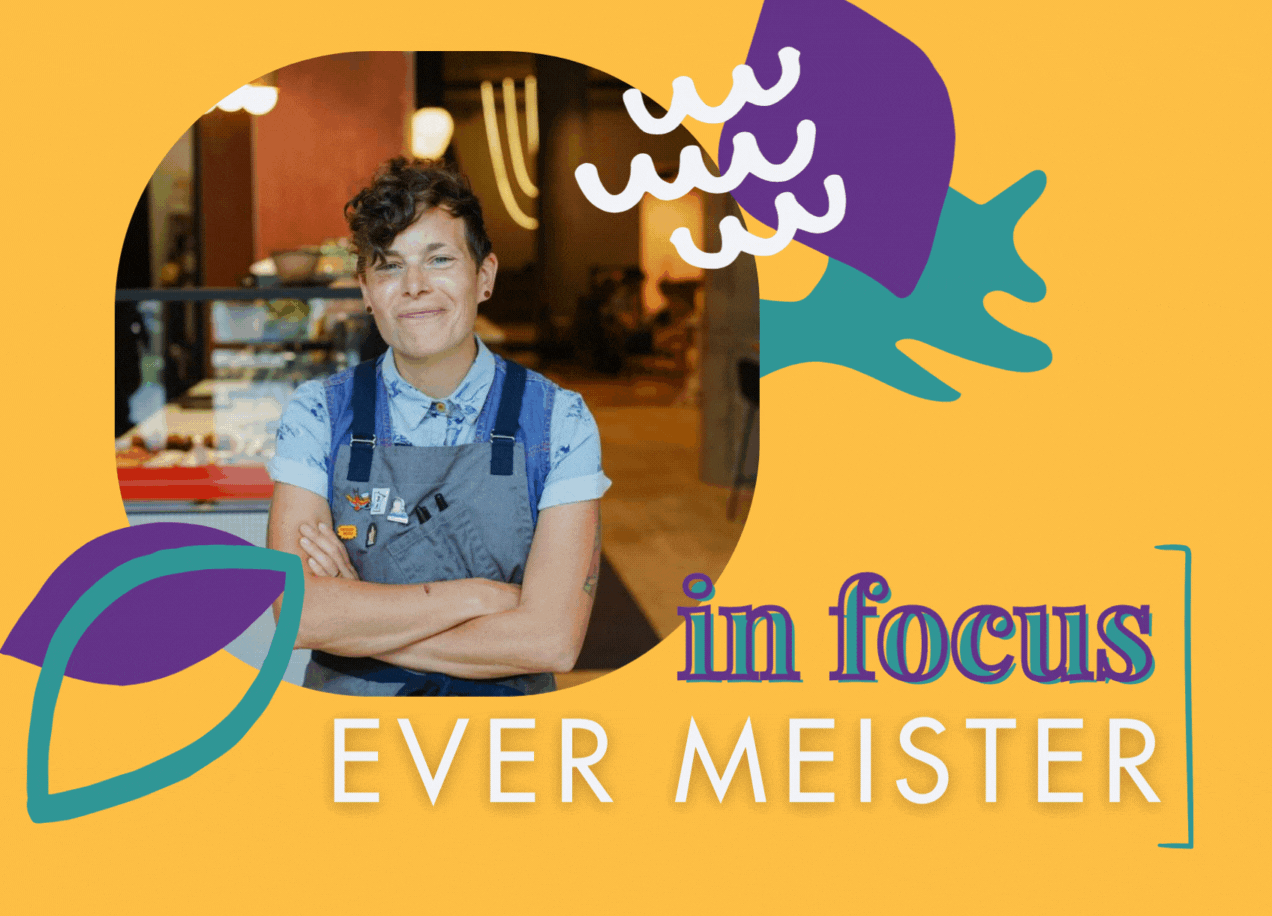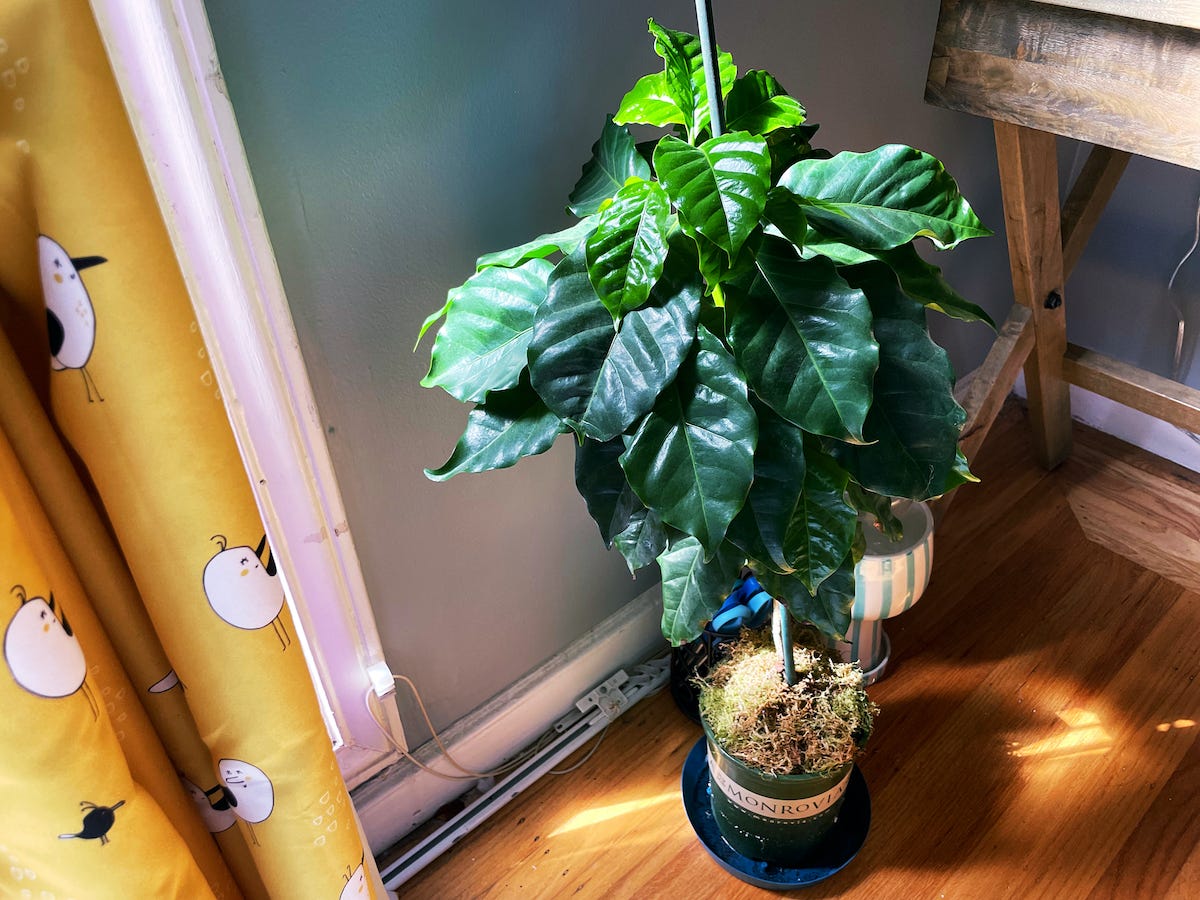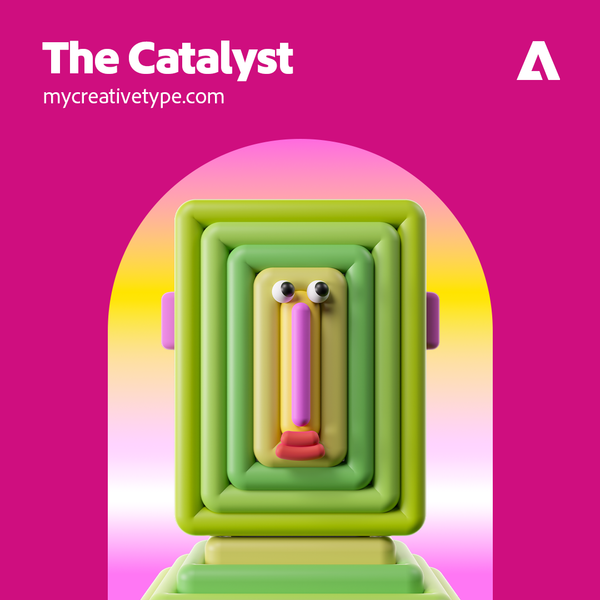🔎 In Focus: Ever Meister
A candid interview on creativity and how they've changed over the course of 20+ years of writing in the coffee industry.

Notes from Jenn:
- I have now successfully harvested carrots, beets, and zucchini!
- This is a long newsletter issue so if you’d like to skip ahead to the social media section, click here.
- The second part of this interview will be for paid subscribers. Paid subs receive two additional emails a month that are a mix of essays and article “bonus” content. It’s possible that I may unlock some content after a few months but paid subs will always have that first peek. If you’re on the free list, you’ll receive a short email preview of this (I promise not to use this feature too often).
- Published: “Welcome To The Golden Age Of Coffee And Board Games”
About In Focus
The coffee industry wouldn’t be where it is today without the people in it. And the niche of “coffee content creator” is filled with people nerding out on machine specs, product reviews, coffee reviews—I’m not interested in any of that for this series. Instead, I’d rather talk about the topics that interest them, whether or not they’re about coffee. For “In Focus,” coffee is a conduit to the creative lives of coffee people, not the main focus of the interview.
This is the first in the series and also filed in the “🔎 In Focus” section of the newsletter. If you don’t enjoy it, you can always unsubscribe from this section.


In Focus: Interview with Ever Meister
“Conclusions are white supremacy, Jenn,” Ever Meister tells me.
This piece of gold was delivered to me three-quarters into our interview. We were discussing what we found to be difficult to do in writing. For Ever, it’s the first line of a piece, which they always write last. “I remember I had a teacher in journalism school who was like, the oldest, crustiest, most experienced journalist on staff,” they recalled. “And I remember he told me once, ‘Meister, one day you'll be a good journalist, but you cannot write a fucking lede.’” For me, it’s the conclusion. No one reads to the end unless you’re in the writing field, and I told them as much.
They responded: “That structure is white supremacy. If someone needs you to draw the conclusion for them, that's just lazy reading. Don't worry about it. Release yourself of that anxiety. You need the writer to tell you what you're supposed to think or do or feel? No. Figure it out.”
I’m not sure I’m at the confidence point where I can say, fuck conclusions, but it’d be nice to get there. And upon reflection, it does bear questioning—why does the writer need to draw the conclusion for the reader? Does the article really need to be wrapped up and touched off with a fancy bow, or could it not just be left alone in all its messiness and complexity?
There are several important points in time that I can point to as being influential in my desire to be in the coffee industry. One of them was reading the writings of Ever Meister. I remember their features in Serious Eats, thinking I did not know you could write so much about coffee (something to be said here about how you need something modeled for you in order to strive for it). It’s also when I realized that combining coffee and writing was “a thing” you could do. Over the decades of writing that they’ve done, I’ve always admired the way they could seamlessly introduce topics to consumers—weaving words that were digestible, understandable, and interesting. It’s safe to say that they’re a writer I admire and, lucky for me, was interested in talking to me about pretty much anything.
In this first installment of “In Focus,” where I profile coffee creatives, I truly appreciate the time and conversation that we had. It was enlightening, funny, and interesting, and I hope you think the same as well.

Ever began writing online with a coffee blog called “Meet the Press Pot” on Blogger in 2006. It’s no longer in existence, but they’re thankful for the opportunity to be able to write whatever they wanted about coffee.
Ever: You've reached that point when you look back at your creative self, and you're like, wow, this archive no longer needs to exist. But it was amazing. It was the early days of blogging, so you didn't have to actually create any interesting content.
Jenn: Do you remember your first coffee article?
Yes. It was a first-person essay for the Boston Globe about being a barista. And it was a little slice of cafe life; it was quirky stories about the regulars. It was a cute story, but they misprinted my byline, and it actually said Eric Meister, which I thought was really funny.
In the time that you've been spending writing about coffee, how have you seen the writing landscape change?
In the early days, there was this blessing and curse of having the opportunity to publish whatever it was that you thought or whatever it was that you wanted to say, because there was a degree of implied expertise. I don't have a formal theory designed, but I do think that the rise of hipster barista culture probably corresponded to some degree with the online coffee presence at that time, because it created heroes and rock stars that didn't exist before. People who didn't have the courage to publish things or didn't have the audience suddenly were turning to folks they'd never met before. And you could make yourself an expert pretty quickly.
Do you have an example of something you used to really believe in, and you no longer care much about?
To be honest, the way that coffee tastes. I want it to taste good. Sure, I don't want to drink something that tastes like moldy cheese. But it's the least important thing to me when it comes down to it. And I would trade the years that I really obsessed about cup scores and flavor notes and gesha variety—to have the energy back, to put it toward things that really matter, like whether or not this industry can ever be sustainable or equitable.
A lot of the best-tasting coffees in the world leave a really shitty taste in your mouth if you know where they come from.
And I wasted a lot of time, really beating the drum of coffee quality. That sucks to realize, but it's true.
You're still doing consumer education articles, right? Has that changed? Like the style or the approach?
Yeah. I find I'm more interested in meeting people where they are than in trying to turn them into coffee professionals or to convince them that they need to think like a coffee professional in order to have something good. Because people are going like what they like and there's nobody who can tell you that what you like is wrong. This industry has enough problems without making people feel bad about the coffee that they're drinking.
How do you stay inspired, or where do you get your inspiration from?
People. I always love to hear what people are interested in, and no matter how many times you feel like you've answered a question, someone still has the same question, and there are a thousand ways to answer every one of them.
What do you think about the value of creativity or creative work? Not the dollar amount, but like how people perceive creative work, whether it's clients or just the general reading public.
I think it has always, probably, been really hard to be creative in a capitalistic society. When I went to journalism school, I didn't want to be a journalist. I wanted to be a poet, and I went to journalism school because you can't make any money being a poet. I realize now that when I went to school to be a journalist, it was the cementing of an idea in my mind that something isn't worth doing unless you can make money from it.
I have really struggled from wanting to explore other types of creative mediums or feeling just drawn to make art. Then also feeling like I'm not good enough to make art: who the hell am I, nothing will ever come of it, never going to sell it. I'm never going to be an artist like that. Like you have to be receiving checks to make art. And just realizing that productivity and creativity don't have to always coexist in relationship to each other. So I think these days, it's really hard for folks to, first of all, be creative in a way that feels fulfilling because it's a constant churn. The need to continue to create content in order to either make money or to generate relevance or to grow in your field is exhausting.
And I don't think that a lot of people—because there's so much content being thrown at us at all times from all platforms and we have no idea what the credibility of the people who are creating it is, or what they've done before—you don't develop relationships with creators in the way that we probably had to in the past. It probably seems like it just appears out of nowhere and it doesn't take any work to do.
I really think that creativity is undervalued because we've turned it into a product as a culture.
Other cultures probably don’t suffer the same way. I also think that what gets considered creative is often a very limited amount of what actually is creative.
Is there a project you want to do? Like if there's a dream world, what would you do?
There is something that calls to me about exploring hospitality. I've become really interested in it. And I think again, that shift of really caring less about the product and more in general about community and personal interactions. Really caring about other people and the way that we're all connected. I care a lot less about making money, and I care a lot less about the business as the important piece of that relationship and that interaction. So there's something there that I'm really interested in; I just haven't quite found what that looks like. I don't think anybody needs my advice. Nobody needs my hospitality memoir, no one needs anything like that.
Right now, I'm more interested in helping other people succeed in writing about coffee. Something that I would love to do more of is mentor folks and help people learn how to write when they haven't done it before. Again, the coffee industry has heard enough from people who are like me, and I need to step aside and really let other people offer their thoughts and their writing. It's just so valuable. But a lot of the coffee journalists are still white people, you know? So how do we change that? I would love to contribute to changing that by giving whatever I know and any resources I have, whether that's a contact somewhere, editorial advice, or brainstorming ideas.

Ever Meister is a journalist and author with over 20 years of experience in the coffee industry. They also host the coffee marketing podcast “In Good Taste” on the Sprudge Podcast Network. My conversation with Ever continues next Wednesday in a post for paid subscribers. The “In Focus” series is about creativity, and in Part 1, we discussed exactly that. But there were so many gems in our conversation that I wanted to share those, too, as bonus material. In Part 2, we discuss compliments, anxiety, and a book proposal that they’re glad got rejected. Free subscribers will be emailed a short preview of this.

🤳🏻 social media
Instagram wants you to train its algorithm to fit your preferences.
Twitter officially launched Circle to everyone (like IG close friends). It’s testing customizable CTA buttons and adding podcasts to Spaces. The ex-security chief of Twitter filed a whistleblower complaint with the SEC, FTC, and Justice Department for “egregious deficiencies, negligence, willful ignorance, and threats to national security and democracy.”
📤 digital marketing
- Marketing Plan and Chill?: “We’re going deep on tracking and analytics setup, SEO, paid advertising, CRM, landing page optimization, virality and even branding. This is what you should expect your marketing lead to deliver.” [note that this is a long read but worth it if you need a marketing plan outline]
- The 4 Stages of a Supremely Successful Content Marketing Funnel: But executing a winning content marketing strategy is a careful process, and it cannot be done without a content marketing funnel. So in this post, I’m going to take you on a tour of the content marketing funnel, from awareness to conversion and beyond, and share with you the best types of content for every stage, my tips for success, and plenty of templates.”
👀 interesting reads
- The Joy of Being Alone: “Recently, I’ve been having a lot of conversations about community building and children and loneliness. So, I thought I’d write a follow-up. I think it’s important to note that even if the system works for you, that doesn’t mean it’s a good system. That no one is owed marriage or children. And that our own company is good.”
- What Comes After Ambition?: “Hustle culture is dead. Did American women’s drive go away, or has it morphed into something new—and maybe better?”
- Visiting Mariah Carey’s Cat’s Grave: Reflections on Disenfranchised Grief: E.B. Bartels on the Particular Sorrow of Losing a Pet. [just so you know, this piece made me cry—you’ve been warned]






